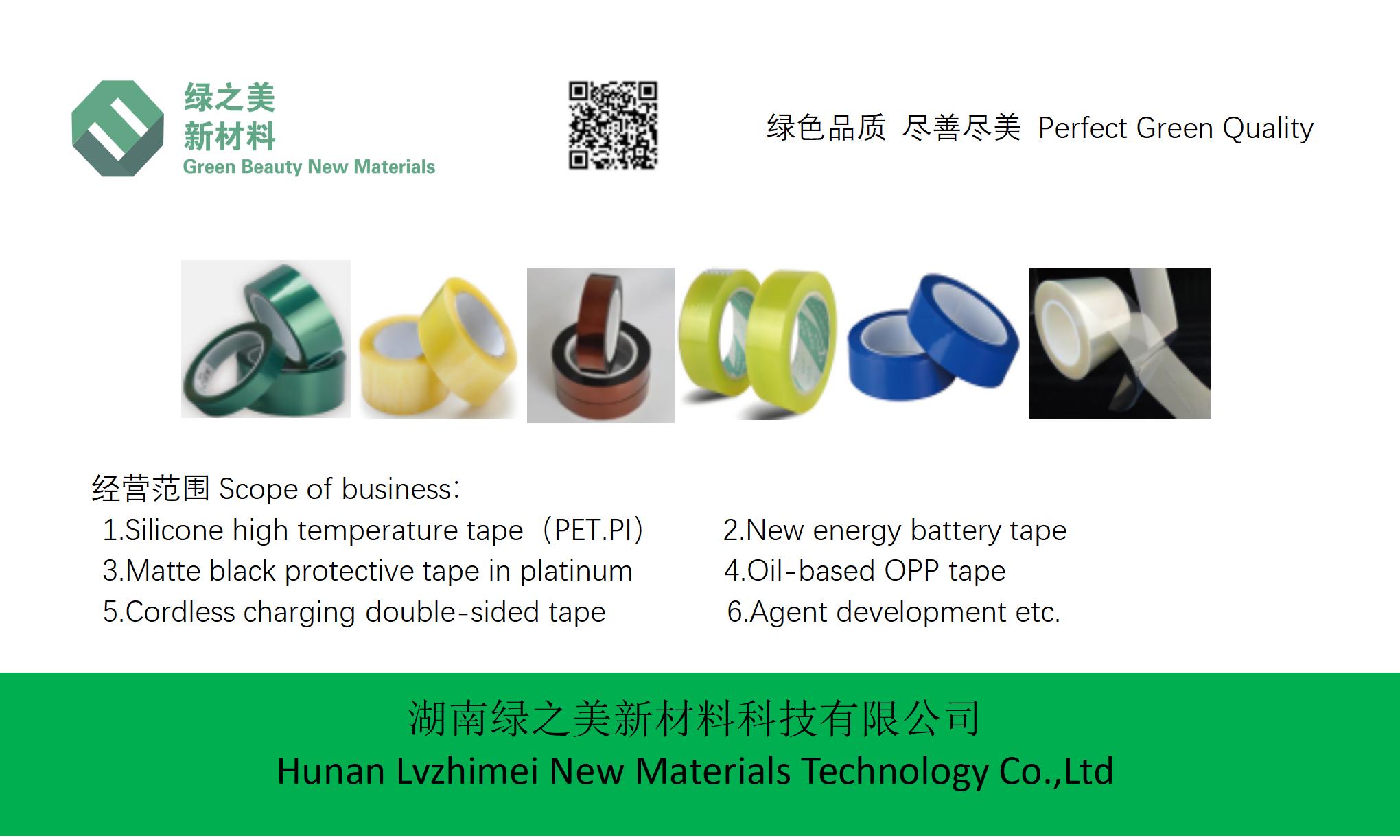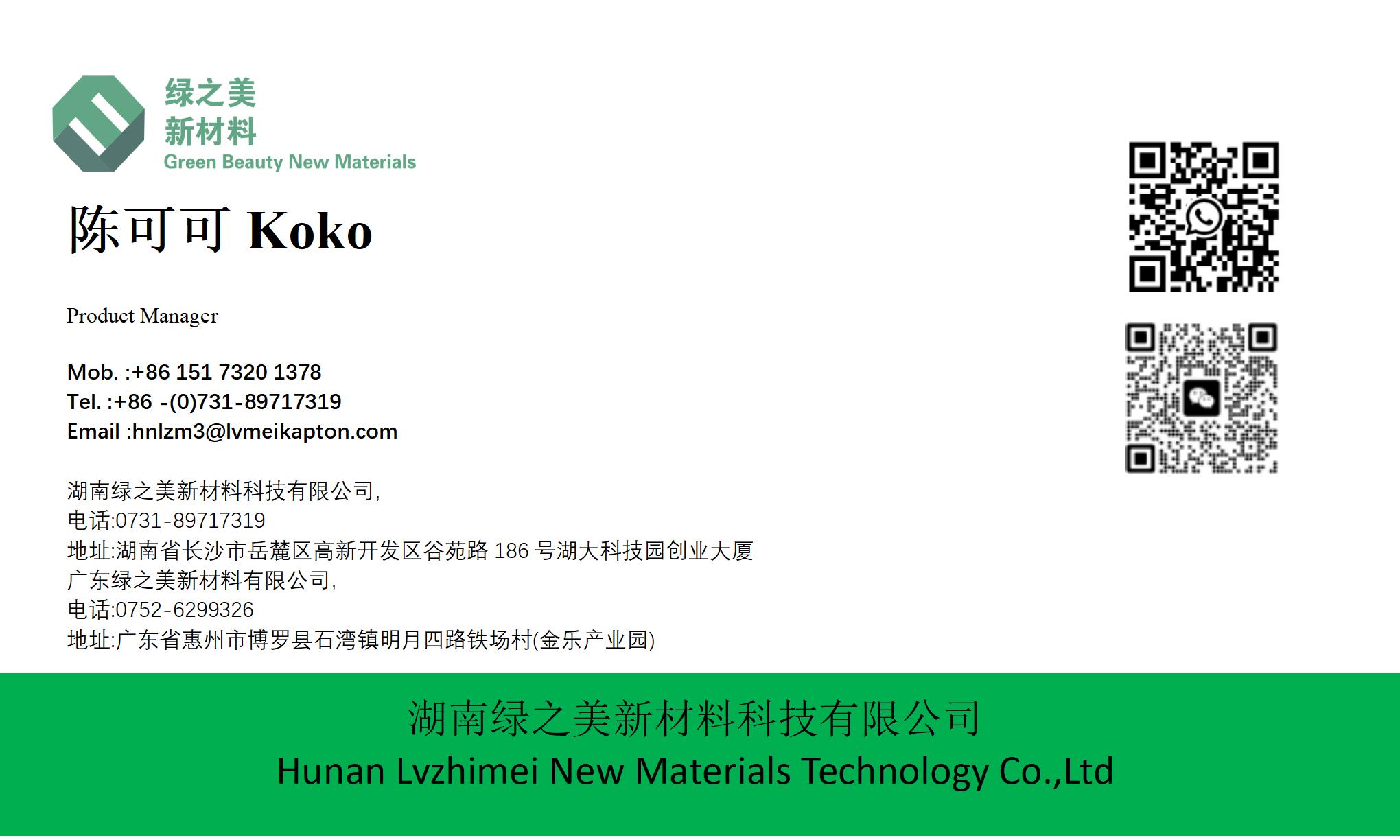hnlzm@lvmeikapton.com
+86 13787123465


Hunan Lvzhimei New Material Technology Co., Ltd.


NameDescriptionContent
Who Benefits Most from Using PI Material High Temperature Resistant 300 Tape in Electronics? |https://www.lvmeikapton.com/
Source:
|
Author:Koko Chan
|
Published time: 2025-05-15
|
314 Views
|
Share:
In the ever-evolving electronics industry, materials that withstand extreme temperatures and maintain electrical integrity are paramount. PI (Polyimide) material high-temperature resistant 300 tape, also known as Kapton tape, stands out for its exceptional thermal stability, electrical insulation, and chemical resistance. This article delves into the key beneficiaries of this technology, exploring how its properties drive innovation and reliability across diverse sectors.
Who Benefits Most from Using PI Material High Temperature Resistant 300 Tape in Electronics?
Target Audience: Engineers, ManufacturersWord Count: 3900Keywords: PI Material, High Temperature Resistant 300 Tape, Gold Finger Electronics, Polyimide Tape (Kapton), Insulating Electrical Tape
Introduction
In the ever-evolving electronics industry, materials that withstand extreme temperatures and maintain electrical integrity are paramount. PI (Polyimide) material high-temperature resistant 300 tape, also known as Kapton tape, stands out for its exceptional thermal stability, electrical insulation, and chemical resistance. This article delves into the key beneficiaries of this technology, exploring how its properties drive innovation and reliability across diverse sectors.
Core Benefits of PI Material High-Temperature Tape
Before examining specific industries, understanding the tape’s technical attributes is crucial:
Property | Advantages |
Temperature Resistance | Operates up to 300°C (short-term) and 260°C (continuous), ideal for high-heat processes. |
Electrical Insulation | H-class insulation (IEC 60085) prevents short circuits and withstands high voltages. |
Chemical Resistance | Resistant to acids, solvents, and alkalis, ensuring stability in harsh environments. |
Flexibility & Adhesion | Conforms to intricate shapes without cracking; low residue upon removal. |
Environmental Compliance | Meets RoHS, REACH, and UL certifications, aligning with global sustainability standards. |
These properties position PI tape as a critical enabler for miniaturization, high-temperature reliability, and long-term component protection.
Key Beneficiaries and Their Applications
1. Printed Circuit Board (PCB) Manufacturers
Challenges:
●
Miniaturization demands high-density components, increasing heat accumulation.
●
Surface Mount Technology (SMT) requires protection during wave soldering (240-260°C).
●
Gold finger connectors need shielding to prevent oxidation and wear.
How PI Tape Addresses These Needs:
●
Wave Soldering Protection: The tape masks sensitive areas during soldering, preventing thermal damage.
●
Gold Finger Insulation: Its low dielectric constant (≈3.4) and high breakdown voltage (≥100 kV/mm) protect connectors.
●
Thermal Management: Acts as a heat barrier between layers, reducing thermal stress on components.
Benefit: Extended PCB lifespan and improved reliability in consumer electronics (e.g., smartphones, laptops).
2. Automotive Electronics
Challenges:
●
Electric vehicles (EVs) and hybrid systems generate extreme temperatures (up to 200°C).
●
Engine control units (ECUs) and battery management systems require robust insulation.
●
Harsh environments (vibration, moisture) demand durable materials.
Applications:
●
Motor & Transformer Insulation: PI tape’s thermal stability (H-class per IEC 60085) ensures safety in drivetrains.
●
Battery Cell Wrapping: Shields lithium-ion battery terminals from thermal runaway risks.
●
Wire Harness Protection: Adheres to complex geometries, resisting abrasion and chemicals in underhood environments.
Benefit: Enhanced vehicle safety and longevity, meeting stringent automotive standards (e.g., ISO 16750).
3. Aerospace & Defense
Challenges:
●
Extreme temperature fluctuations (-55°C to 200°C) in aerospace systems.
●
Radiation exposure in space applications.
●
Lightweight solutions for fuel efficiency.
Unique Advantages:
●
Weight Reduction: PI tape’s thin profile (0.025-0.15 mm) replaces bulkier insulation materials.
●
Radiation Resistance: Its stability against UV and ionizing radiation prolongs satellite component life.
●
High-Voltage Insulation: Shields critical systems in avionics and missile guidance systems.
Benefit: Reliable performance in mission-critical equipment, reducing maintenance costs.
4. Renewable Energy Sector
Challenges:
●
Solar inverters and wind turbine generators operate in high-temperature environments.
●
Corrosion risks from outdoor exposure.
●
Long-term durability for 20+ year asset lifespans.
Applications:
●
Solar Panel Wiring Protection: PI tape withstands UV exposure and thermal cycling (-40°C to 85°C).
●
Transformer Coils Insulation: Prevents failure in grid-scale power conversion systems.
●
Offshore Wind Turbine Cables: Resists saltwater corrosion and mechanical stress.
Benefit: Boosts renewable energy reliability, lowering operational costs.
5. Industrial Electronics & Motors
Challenges:
●
High-speed motors (≥10,000 RPM) generate heat and mechanical stress.
●
Oil, gas, and mining equipment face corrosive environments.
Key Uses:
●
Stator & Rotor Insulation: PI tape’s high tensile strength (≥100 MPa) withstands centrifugal forces.
●
Sensor Protection: Shields temperature sensors in blast furnaces (up to 300°C).
●
Cable Wrapping in Harsh Industries: Resists abrasion and chemicals in refineries and mines.
Benefit: Reduces downtime and maintenance in high-value industrial machinery.
Case Studies: Real-World Impact
1. EV Battery Thermal ManagementTesla’s Model S battery pack uses PI tape to insulate individual cells. The tape’s thermal stability (up to 300°C) and chemical resistance prevent cell-to-cell thermal propagation, improving safety. According to Tesla’s 2023 annual report, this technology contributed to a 25% reduction in battery failure rates.
2. Aerospace Weight OptimizationNASA’s James Webb Space Telescope employed PI tape for cable insulation, saving 15 kg compared to traditional materials. The tape’s radiation resistance also ensured component functionality during its five-year mission.
Market Trends & Future Outlook
Global demand for PI tape is projected to grow at a CAGR of 8.5% through 2030 (Grand View Research, 2024), driven by:
●
5G Infrastructure: Miniaturized base stations require high-temperature insulation.
●
Foldable Electronics: PI tape’s flexibility enables protection in folding displays and hinges.
●
Green Energy Expansion: Solar and wind installations demand durable insulation materials.
Conclusion
PI material high-temperature tape benefits a wide spectrum of industries, each leveraging its unique properties to overcome technical challenges. From enabling electronics miniaturization to enhancing EV safety, its role in modern technology is indispensable. As emerging sectors like renewable energy and space exploration scale up, PI tape’s versatility will continue to drive innovation and reliability.


Hunan Lvzhimei New Material Technology Co., Ltd.
Quick Links
Product Categories
© 2024 Hunan Lvzhimei New Material Technology Co., Ltd.All Rights Reserved. Designed by Erge
0731 - 89717319
hnlzm@lvmeikapton.com
+86 13787123465
Room 502, Chuangye Building, No186, Guyuan Road, High-Tech District, Changsha, Hunan, China
CONTACT









